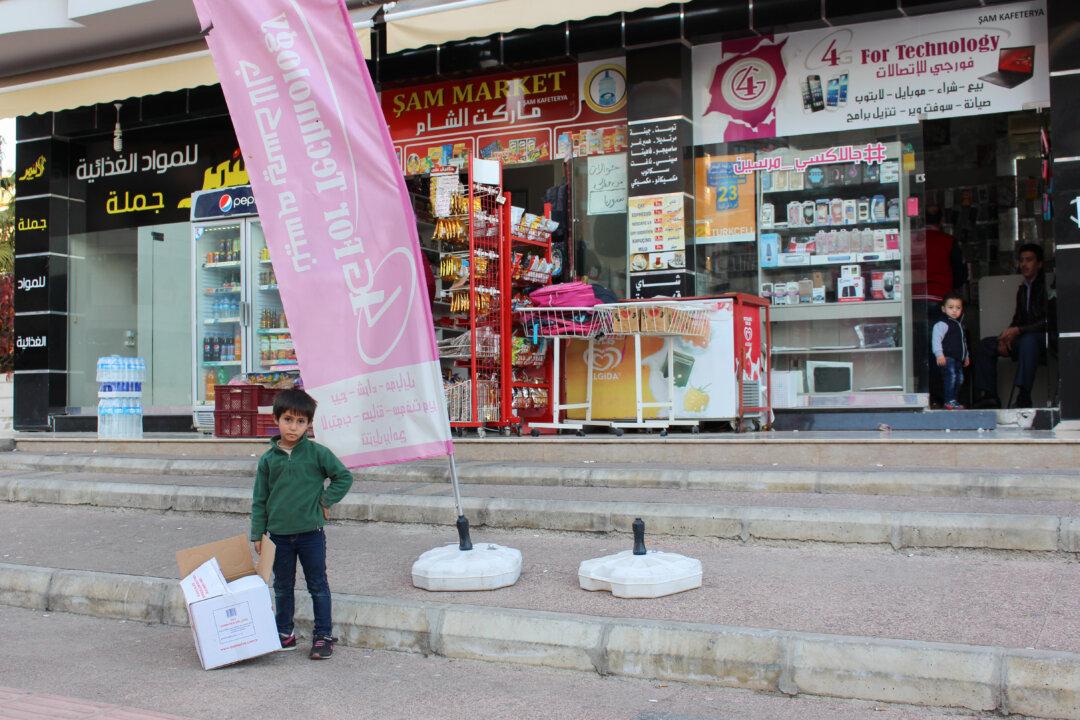MERSIN, Turkey—“I don’t like Syrian food, I like Turkish food,” said Abd-Almajed, a 6-year-old Syrian boy with a cheeky smile. He seems to have adjusted well to his new life in Turkey.
He and his family fled to Turkey in 2012 after their house in Idlib, Syria, was hit by an airstrike that killed his father and sister. His mother and older brother who survived the incident were seriously injured and hospitalized for two months.
Abd-Almajed, who was 2 at the time, was miraculously rescued without injury thanks to a spoon in his hand.
“It was 7 in the morning,” said his mother Ahdaab (last name withheld for security reasons). “I was preparing breakfast for the kids. We heard the sound of government warplanes flying over the town. Shortly afterward, they started dropping bombs.”
Their entire house collapsed when it was struck by a bomb. They were trapped under the ruins for a few hours until a rescue team arrived.
“When the rescue team was searching, they heard a strange noise. It was coming from Abd-Almajed who was banging the spoon on a piece of metal under the ruins. That’s how they found him and his mother,” explained his grandmother, who was living in Aleppo at the time. She also managed to escape to Turkey with other family members.
After Ahdaab recovered, they fled to Mersin, a coastal city in Turkey. Mother and son now live with the grandmother and six other relatives in a small house in a poor district of Mersin.
“I speak Turkish and Arabic,” said Abd-Almajed proudly. He goes to a Turkish school in his neighborhood. “I love my school and friends,” he said.






